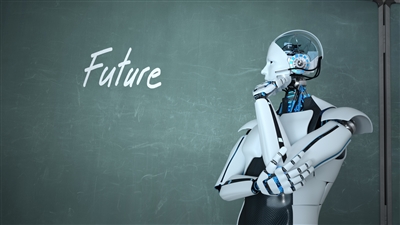Will artificial intelligence replace the school classroom?

School classrooms have been around since the times of the Roman Empire, first appearing in Europe in the middle of the 4th century BC - but after more than 2000 years could they finally be facing obsolesce? According to professor Stuart Russell, a British computer scientist working at Berkley, University of California, recent developments in AI may very well be leading to the end of the traditional school classroom.
It is predicted that AI tutors, utilising chatGBT programmes, could replace teachers, and provide tailored lessons for each each pupil. The emerging technology has the potential to reach individual students through their smartphone, and could deliver `most material through to the end of high school,` according to Professor Stuart Russell.
The professor has predicted that education will face huge reforms in upcoming years, and `It ought to be possible within a few years, maybe by the end of this decade, to be delivering a pretty high quality of education to every child in the world. That`s potentially transformative.`
There is an abundance of evidence pointing to the fact that one to one tuition using human tutors is hugely beneficial for students, with many studies claiming it can be as much as two or three times as effective as regular classroom teaching. AI lessons will simply build upon this, with chatGBT programmes being able to analyse and tailor each lesson to the each student`s method of learning.
One-to-one learning has been known to be effective for many years of course, and Professor Russell went on to say that such places of learning as Oxford and Cambridge Universities abandoned large classes long ago, instead favouring tutors and small study groups, `presumably because it`s more effective.` With smaller classes the teacher can devote more time to each student, and be more attentive to their needs.
Of course there simply aren`t enough teachers to provide each student with their own tutor, but AI has the potential to meet this challenge. OpenAI, the company that has developed the chatGBT algorithm, has recently announced a partnership with an nonprofit academy to test out a virtual tutor powered by the latest chatGBT-4 programme.
Of course this is all new new technology, which is being applied to the education sector in totally novel ways. No one really knows how effective it will be. School isn`t just about children assimilating data - it`s a place where they learn to socialise, to make friends and develop a sense of self. Many are worried that, with children spending ever more time online, they are missing out on much of their childhood, and spending too much time alone in front of their screens.
There is also a concern that the AI could teach children things that have the potential to be harmful to them and others. Professor Russell said that of course the technology will need to be stringently risk assessed, and `hopefully the system, if properly designed, won`t tell a child how to make a bioweapon. I think that`s manageable.` He went on to say that a more pressing worry is the chance the AI tutor could be hijacked and manipulated by malicious individuals or authoritarian regimes, `I`m sure the Chinese government hopes (the AI tutor) is more effective at inculcating loyalty to the state - I suppose we`d expect this technology to be more effective than a book or a teacher.`
It is clear that technology is going to play an ever more prominent part in all future sectors of society. If AI has the potential to provide high quality tuition to each and every student, this is something that certainly should be considered. With so many teachers leaving the profession, the sector could certainly use this kind of assistance.

 Add a Comment
Add a Comment